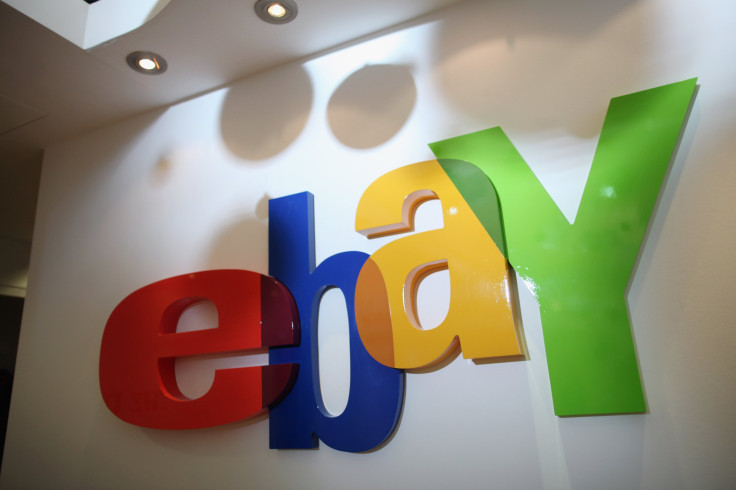Brexit And US: How British EU Exit Would Affect Americans

If Britain votes Thursday to split from the European Union, the impact of so-called Brexit is likely to reverberate across the Atlantic. Here are three ways a British departure from the EU could affect Americans.
1. Real estate prices could rise. Brexit-related uncertainty in markets in London, one of the top destinations for foreign investors in real estate, could push these investors to consider parking their money in other cities, like New York, Washington, Miami and Los Angeles.
That shift began even before talk of a Brexit had started, according to Edward Mermelstein, a New York real estate attorney. The possibility that the U.K. might abandon the European Union has exacerbated the trend.
“The implication of Brexit taking place is that it is looking good for the U.S. market,” Mermelstein said.

The average price of a house bought by a foreign investor from April 2014 to March 2015 in the U.S. was $500,000, nearly twice the average home price of $256,000, according to the National Association of Realtors.
The flip side, of course, of a Brexit bolstering U.S. real estate markets, is that U.S. buyers could face stiffer competition if they’re vying against foreign investors for the same property.
2. Companies in a variety of sectors would feel the burden of a Brexit, in the short or the long term — or both — that might be reflected in slumping revenues, stock prices and corporate earnings.
U.S. companies have invested $558 billion in the U.K., the Financial Times has reported. Meanwhile, 88 percent of companies in a recent survey by BritishAmerican Business said its access to the EU’s single market boosted the business appeal of the U.K.
“Brexit would lead to a global fall in equity prices,” wrote Aaron Klein and DJ Nordquist in an opinion paper for the Brookings Institution, the independent think tank. It “could spell the first falling domino of European Union disintegration,” as a vote “would only be the first step” in a U.K. departure from the EU.
The sectors most affected, based on revenue exposure to the U.K., are energy, information technology and materials, which have respective exposures at 6.4 percent, 4 percent and 3.7 percent, according to research firm Factset.
Companies with some of the highest sales exposure to the U.K. include eBay, Ford and Xerox, CNBC has reported.

Companies in the Standard & Poor’s 500 draw 2.9 percent of their revenue from the United Kingdom. For Newmont Mining of Colorado, for instance, it’s 64 percent.
For Brooklyn Brewery in New York, 8 percent of sales come from the U.K. “Everything going on with this Brexit vote is concerning to us, that it might destabilize the country, affect currencies, change the trading relationship with the rest of the continent,” CEO Eric Ottaway told International Business Times.
Roger Perlmutter, the head of research and development at Merck, a pharmaceutical company headquartered in New Jersey, has warned if the U.K. withdraws from the EU, its scientists in Britain might struggle as they had benefited from EU grants. In January, the European Investment Fund put 24.8 million British pounds toward the commercialization of scientific inventions, including new medicines.
Other leaders in the pharmaceutical industry have voiced concerns a Brexit would lead to trade risks and new regulations that could ratchet up costs for companies that are used to operate in a 28-country zone with synchronized rules on intellectual property, quality standards and other important criteria.
Converting earnings in British pounds to dollars could also cost companies, given the downward direction of the sterling in the past year. The pound has depreciated against the U.S. dollar considerably in recent weeks due to Brexit fears, dropping in February to a seven-year low of $1.4059.
3. Tariffs could rise for certain products. If the U.K. leaves the EU, trade deals and policies would have to be renegotiated. For U.S. businesses that have treated Britain as their gateway to the EU, this could mean an increase in tariffs to gain access to European markets once the EU no longer counts the United Kingdom among its members.
“There will likely be tariffs to pay for cross-border market access,” Matthew Beesley, head of global equities for Henderson Global Investors, told CNBC. “It is to be negotiated, so we just don’t know. This is the uncertainty.”
Major U.S. companies like Coca-Cola, Abercrombie & Fitch and Gap could be affected, Beesley added.
The United Kingdom ranks among the top 10 U.S. trading partners. In 2015, the U.S. exported $56.1 billion worth of goods to Britain.

James Quincey, president and CEO of Coca-Cola, has urged against a Brexit, citing the financial uncertainties that would continue to ripple through markets.
The impact of such uncertainty was deemed significant enough that eight former U.S. Treasury leaders spoke out against it in April. In an open letter to the Times they said that to protect the global economy, including the U.S., the U.K. ought to vote to stay.
Even U.S. President Barack Obama has urged the United Kingdom to remain a part of the European Union, for Europe’s sake and for the U.S. as well.
“The United Kingdom remains a friend and ally to the United States like no other,” he wrote in an opinion piece in the Telegraph in April. The challenges of “terrorism and aggression; migration and economic headwinds ... can only be met if the United States and the United Kingdom can rely on one another, on our special relationship, and on the partnerships that lead to progress,” he added.
The United Kingdom has long been the bridge between the U.S. and the European continent — militarily, diplomatically and economically. What would things look like for the U.S. if the special framework — a European Union that includes Britain — surrounding that partnership ceased to exist?
If the U.K. votes against a Brexit, the U.S. does not have to contemplate that possibility. But it will have to wait until the early hours of Friday to find out.
© Copyright IBTimes 2024. All rights reserved.






















